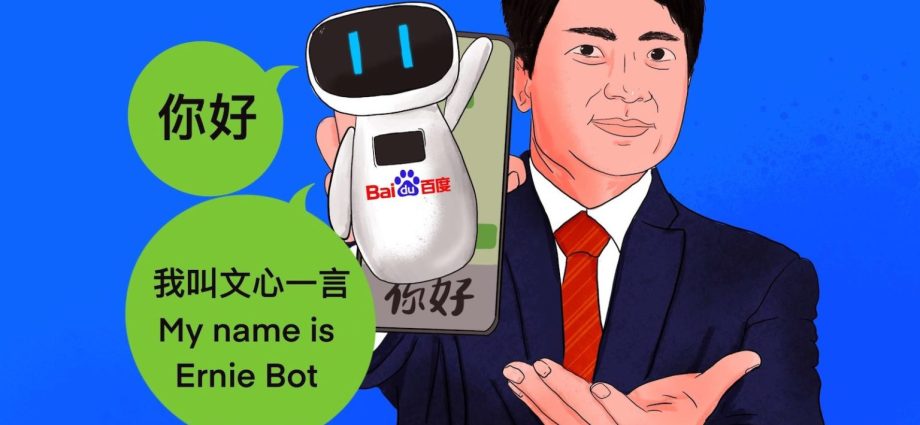China will require all locally used artificial intelligence (AI) chatbots to censor their content, making it comport with the ruling Communist Party’s core socialist values.
The Cyberspace Administration of China (CAC), the country’s internet watchdog, on Tuesday (April 11) started a one-month public consultation for a set of new rules that will forbid AI chat apps from spreading fake information or seditious materials that might disrupt social order.
Some commentators said political censorship will slow the development of China’s AI chatbots. Chinese writers said there is a long way to go before Chinese chatbots can catch up with the Microsoft-backed startup OpenAI’s ChatGPT, which has already proven to be strong in writing and mathematics.
Since ChatGPT debuted last November, many Chinese companies have announced their plans to launch their own rival chatbots in 2023.
On April 11, Alibaba launched its ChatGPT-style service called Tongyi Qianwen, which literally means “search for the truth by asking a thousand questions.”
Alibaba Chairman and Chief Executive Daniel Zhang said in a media briefing on the same day that all of the company’s products will be connected with Tongyi Qianwen and be revamped completely.
“It is worthwhile to revamp all our segments, applications, softwares and services with the support of our AI-generated content,” Zhang said.
“Such reform will change people’s ways of production, work and living,” he added. “In the AI era, internet firms and companies from different sectors are all at the same starting line.”
Prior to this, Baidu unveiled Ernie Bot, China’s first AI chatbot, on March 16.
Baidu’s co-founder and Chief Executive Robin Li said at that time that Ernie Bot has imperfections and is lagging behind ChatGPT-4, which he noted has already set a very high standard in logical reasoning and image analysis. Li said he hopes Ernie Bot will be used to serve all business sectors.
Currently, people in mainland China cannot subscribe to the ChatGPT service directly but have to use foreign phone numbers and credit cards to register via virtual private networks (VPNs) to gain access.
“AI-generated content should reflect the core values of socialism and must not contain materials that promote the subversion of state power, the overthrow of the socialist system, sedition, the undermining of national unity, terrorism or extremism,” the CAC says in a public consultation document on Tuesday.

It says AI-generated content should not promote ethnic hatred and discrimination or violence and should not contain false information, obscenity, pornography or any other content that might disrupt economic and social order.
It says providers of AI chatbots are required to submit safety assessment reports to the government before launching their services. It says they are responsible for any violations of the rules.
Political commentator Shi Shan says in his YouTube channel that political censorship will suppress the growth of China’s AI chatbots, which are required to censor all politically sensitive information. He says that without complete information, Chinese chatbots won’t be able to give the smartest answers.
He also says that it’s natural that AI chatbots provide false information as they are programmed to provide logical answers but not to verify the sources of that information. He says Chinese chatbots will lose creativity if they have limited sources.
However, Chinese columnists are not too worried about political censorship, which has been implemented in news media and online platforms for decades. They care more about the intelligence level of Chinese chatbots.
A Zhejiang-based IT writer says ChatGPT-4 is far more advanced than Ernie Bot in many ways, including logical reasoning, mathematics, writing and common sense – although Ernie Bot may have an advantage in understanding Chinese poems and conversations.
A Henan-based columnist says ChatGPT-4 is much smarter than Ernie Bot as it can give logical and correct answers to most questions. For example, when asked to use five ones to achieve six in a mathematical equation, ChatGPT-4 smartly answered “(1+1)x(1+1+1)=6.” Ernie Bot failed the simplistic math problem.
Another writer compared ChatGPT to an adult and Ernie Bot to a primary school pupil. He says he hopes Chinese AI chatbots will catch up one day.
Read: Fearing ChatGPT is ‘opium,’ China to build its own
Follow Jeff Pao on Twitter at @jeffpao3

